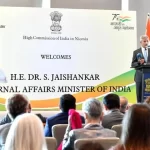Listen the Article:
Rishabh Pant Accident: Prime Minister Narendra Modi wished Indian cricketer Rishabh Pant, who was injured in a road accident, to get well soon. He called Rishabh Pant’s mother and inquired about her condition. Rishabh Pant had a narrow escape when his luxury car caught fire after hitting a divider on the Delhi-Dehradun highway in the early hours of Friday. 25-year-old Pant has suffered head, back and leg injuries, but his condition is stable.

Prime Minister Narendra Modi spoke to the mother of cricketer Rishabh Pant. During the phone conversation, the PM inquired about Pant’s health. The Prime Minister had earlier made a tweet about Pant in which he had prayed for the Indian cricketer’s speedy recovery. Modi said in a tweet, “I am distressed by the incident with well-known cricketer Rishabh Pant. I pray for his good health and well-being.
PM Modi’s mother also passed away
However, Prime Minister Narendra Modi’s tweet on Rishabh Pant is becoming increasingly viral. Cricket fans are constantly wishing Rishabh Pant a speedy recovery by commenting on PM Modi’s tweet. Significantly, the mother of PM Narendra Modi also died today. In such a difficult time, PM Modi also attended his programs and called the mother of cricketer Rishabh Pant to know about his condition.

Rishabh Pant had an accident
Rishabh Pant became a victim of the accident at 4.25 am on Friday. Rishabh Pant’s car caught fire after this accident. Local driver Sushil Kumar, who helped Rishabh Pant, told that he ran there for help when the car met with an accident. However, he was driving his vehicle on the other side of the road at that time. Sushil Kumar was going from Haridwar towards Haryana. At the same time he saw that the car had met with an accident, after the accident the car caught fire. After which he helped Rishabh Pant to get out of the car.




